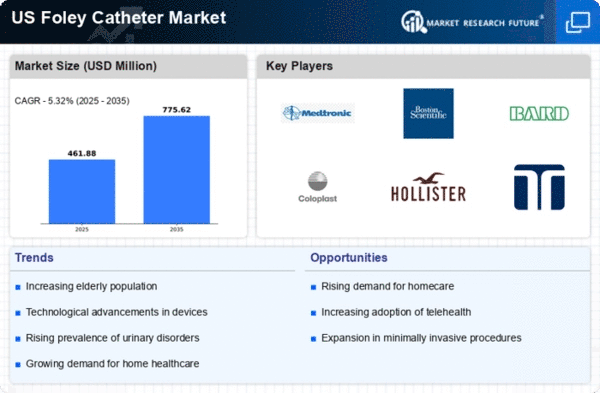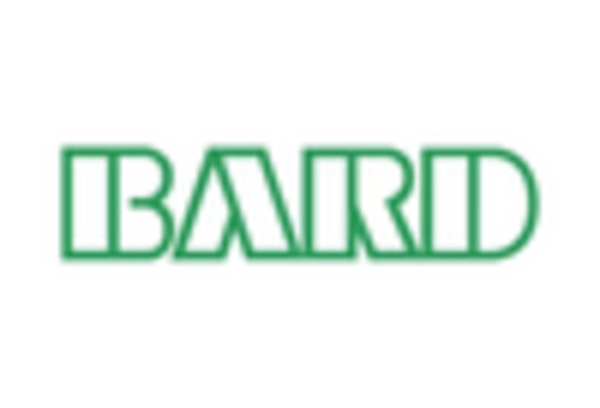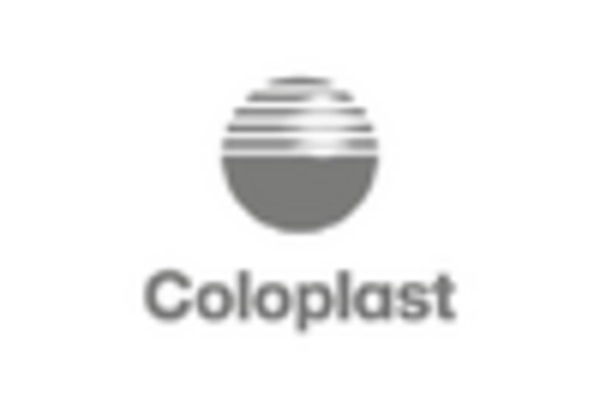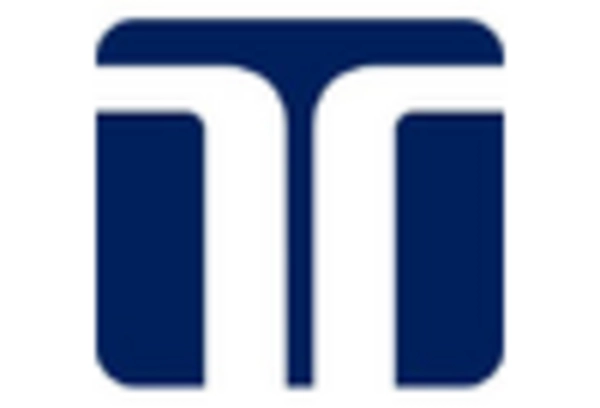Rising Healthcare Expenditure
The increasing healthcare expenditure in the US is a significant driver for the foley catheter market. With healthcare spending projected to reach approximately $4.3 trillion by 2025, there is a growing investment in medical devices and technologies. This trend is likely to enhance the availability and accessibility of foley catheters, as healthcare facilities allocate more resources towards improving patient care. Additionally, the expansion of insurance coverage for urinary management solutions may further stimulate market growth. As healthcare providers seek to optimize their offerings, the foley catheter market stands to benefit from this upward trajectory in healthcare spending.
Emphasis on Patient-Centric Care
The shift towards patient-centric care is influencing the foley catheter market significantly. Healthcare providers are increasingly focusing on improving patient experiences and outcomes, which includes the selection of appropriate urinary management solutions. This trend is leading to a greater emphasis on the comfort and usability of foley catheters. Manufacturers are responding by designing products that cater to patient needs, such as catheters that are easier to insert and remove, as well as those that minimize discomfort. As patient satisfaction becomes a key performance indicator in healthcare, the demand for innovative and user-friendly foley catheters is expected to rise, driving market growth.
Advancements in Medical Technology
Technological innovations in the foley catheter market are transforming product offerings and enhancing patient care. Recent advancements include the development of antimicrobial catheters, which significantly reduce the risk of catheter-associated urinary tract infections (CAUTIs). The introduction of smart catheters equipped with sensors for real-time monitoring of urinary output is also gaining traction. These innovations not only improve patient safety but also streamline clinical workflows, potentially reducing healthcare costs. The market for foley catheters is projected to grow at a CAGR of around 6% over the next few years, driven by these technological advancements that enhance the overall efficacy and safety of urinary management solutions.
Growing Focus on Infection Control
Infection control remains a critical concern in healthcare settings, particularly regarding catheter-associated infections. The foley catheter market is responding to this challenge by developing products that incorporate infection prevention features. Hospitals and healthcare facilities are increasingly adopting protocols that emphasize the use of advanced catheters designed to minimize infection risks. This shift is reflected in the rising demand for catheters with antimicrobial properties, which are expected to capture a larger share of the market. As healthcare providers prioritize patient safety and quality of care, the foley catheter market is likely to experience growth driven by these infection control measures.
Increasing Prevalence of Urinary Disorders
The rising incidence of urinary disorders, such as urinary incontinence and urinary tract infections, is a primary driver for the foley catheter market. According to recent data, approximately 25 million adults in the US experience some form of urinary incontinence, which necessitates effective management solutions. This growing patient population is likely to increase the demand for foley catheters, as healthcare providers seek reliable methods to address these conditions. Furthermore, the aging population, which is more susceptible to urinary disorders, contributes to this trend. As the foley catheter market adapts to meet the needs of this demographic, innovations in product design and functionality may emerge, enhancing patient comfort and outcomes.
















